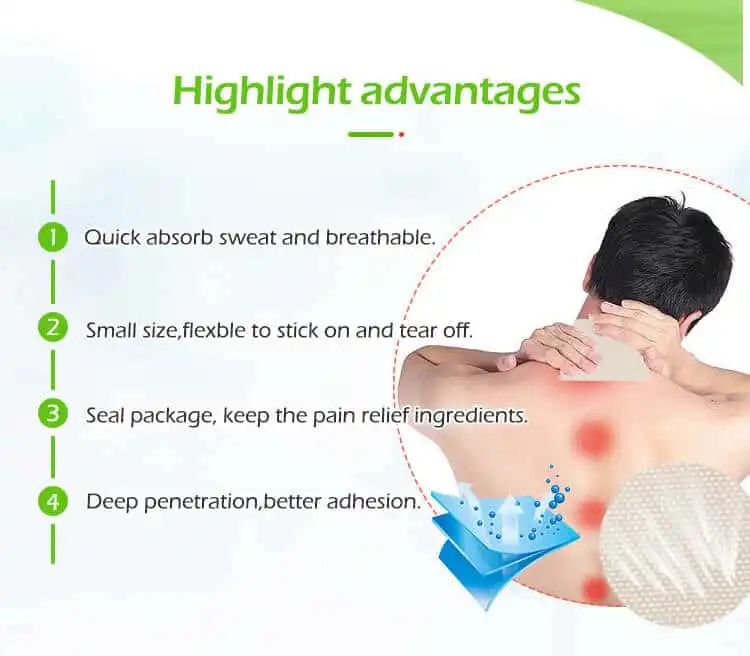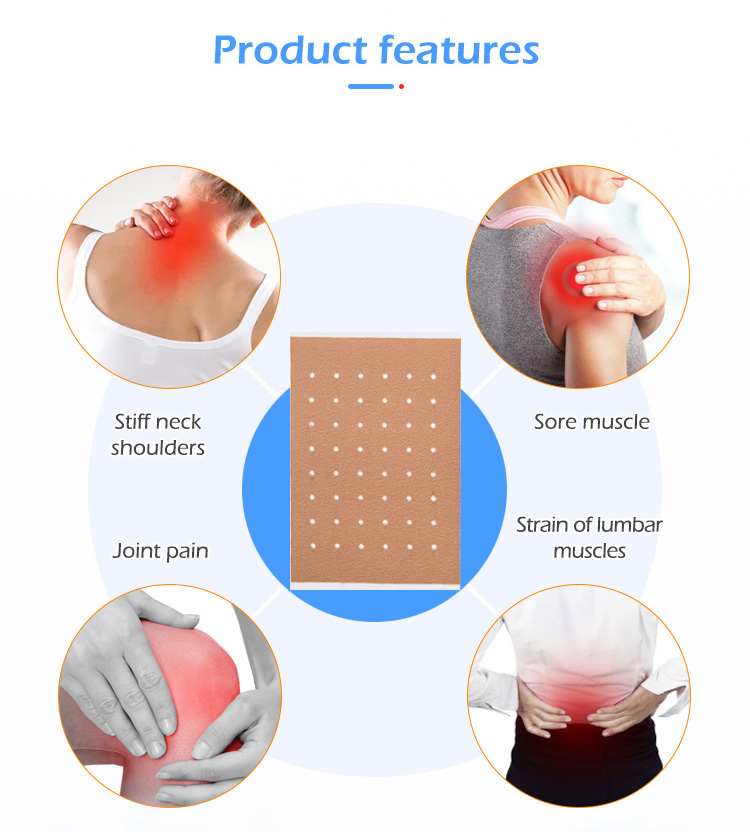How Can I Verify If an Inflammation Relief Patches Manufacturer Is Certified?
Essential Steps to Ensure Quality and Compliance from Your OEM or Supplier
In today’s competitive health and wellness market, selecting the right Inflammation Relief Patches Manufacturer is crucial for building a trusted brand. Whether you’re sourcing Custom Inflammation Relief Patches, partnering with an Inflammation Relief Patches OEM, or purchasing Private Label Inflammation Relief Patches, one of the top priorities is ensuring that your manufacturer meets the necessary certifications and quality standards. Certified manufacturers guarantee product safety, regulatory compliance, and consistent performance — all vital to your success.
This detailed guide explains how to verify if an Inflammation Relief Patches Manufacturer or Inflammation Relief Patches Supplier is properly certified, covering key certifications to look for, verification methods, and why certification matters for your business.

1. Why Certification Matters for Inflammation Relief Patches Manufacturers
a. Ensures Product Safety and Efficacy
Certified manufacturers comply with strict quality management systems and manufacturing protocols. This reduces risks of contamination, incorrect formulation, or inconsistent product quality, which is especially important for Custom Inflammation Relief Patches designed to deliver therapeutic benefits.
b. Legal and Regulatory Compliance
Certifications demonstrate compliance with regional and international regulations such as FDA (U.S.), CE (Europe), ISO standards, and Good Manufacturing Practice (GMP). This protects your brand from legal penalties and supports market approval.
c. Builds Consumer and Partner Trust
When your Inflammation Relief Patches OEM partner holds recognized certifications, retailers, distributors, and end consumers feel more confident in your products, helping to build a loyal customer base.
d. Improves Business Efficiency
Certified manufacturers often have robust quality control systems, reducing production errors and delays. This leads to better supply chain reliability.
2. Common Certifications for Inflammation Relief Patches Manufacturers
i. Good Manufacturing Practice (GMP)
GMP certification is a globally recognized standard ensuring that products are consistently produced and controlled according to quality standards. This is critical for any Inflammation Relief Patches Manufacturer because it covers everything from raw material sourcing to final packaging.
ii. ISO 9001 Quality Management System
ISO 9001 certifies that the manufacturer has implemented a strong quality management system. It ensures continuous improvement and customer satisfaction, applicable for both OEM and private label manufacturers.
iii. ISO 13485 (Medical Devices)
For patches classified as medical devices, ISO 13485 certification is essential. It focuses on design, production, and servicing of medical devices, guaranteeing compliance with regulatory requirements.
iv. FDA Registration and Compliance
In the United States, FDA registration confirms the manufacturer complies with FDA regulations for product safety and efficacy. While FDA does not "approve" all products, registration and adherence to guidelines are mandatory for marketing.
v. CE Marking
Required for selling in the European Economic Area, CE marking indicates conformity with health, safety, and environmental protection standards.
vi. Other Regional Certifications
Depending on your target market, certifications like TGA (Australia), Health Canada (Canada), and CFDA/NMPA (China) may be necessary.
3. How to Verify a Manufacturer’s Certification
Step 1: Request Official Documentation
Ask the manufacturer or Inflammation Relief Patches Supplier for copies of their certifications, licenses, and registration certificates. Authentic documents will have:
Certification body’s name and logo
Issue and expiry dates
Registration or certificate numbers
Manufacturer’s name and address matching their business
Step 2: Verify Certificates Through Issuing Authorities
Most certification bodies maintain public databases where you can verify certificate authenticity by entering the certificate number or company name.
For GMP and ISO certificates, check the issuing certification body's website (e.g., SGS, TÜV, Intertek).
FDA registrations can be confirmed via the FDA’s public database.
CE markings should be accompanied by a Declaration of Conformity and, if applicable, the Notified Body’s identification number.
Step 3: Conduct a Factory Audit or Inspection
A physical or virtual audit allows you to assess the manufacturer’s quality control systems, cleanliness, and compliance with certified standards. Many Inflammation Relief Patches OEM companies allow or encourage audits, especially for large orders.
Step 4: Check Industry References and Customer Reviews
Ask for client references or look for reviews on business platforms and forums. Reliable manufacturers with certifications typically have positive reputations and client transparency.
Step 5: Evaluate Product Samples and Test Reports
Certified manufacturers usually provide product samples along with third-party lab testing reports verifying safety, ingredient content, and efficacy.
4. Tips for Choosing Certified OEM or Private Label Partners
Choose manufacturers specializing in Inflammation Relief Patches or topical pain management products.
Confirm their capability for Custom Inflammation Relief Patches if you require specialized formulas or designs.
Ensure their certifications cover all relevant markets for your target customers.
Look for certifications indicating environmental and social responsibility to appeal to eco-conscious consumers.
Maintain ongoing verification and require updated certifications regularly.
5. Why Partnering with Certified Manufacturers Benefits Your Brand
a. Reduces Risk of Product Recalls and Legal Issues
Non-certified manufacturers increase the risk of faulty or non-compliant products, which can trigger costly recalls and lawsuits.
b. Enhances Market Access
Certified products are easier to register and sell globally, expanding your market reach.
c. Strengthens Consumer Confidence
Certifications are a powerful marketing tool that boosts your brand credibility and drives sales.
d. Supports Innovation and Customization
Certified Inflammation Relief Patches OEM suppliers typically invest in R&D, allowing you to develop innovative, effective products with assured quality.
Related Questions and Short Answers
Q1: What is the most important certification for an Inflammation Relief Patches Manufacturer?
A: GMP certification is the most critical as it covers comprehensive quality control throughout production.
Q2: How can I check if an OEM is FDA registered?
A: Use the FDA’s public registration database by entering the manufacturer’s name or registration number.
Q3: Are Private Label Inflammation Relief Patches always certified?
A: Not always; you must verify certifications with the supplier before purchasing.
Q4: Can I trust certifications provided by the manufacturer?
A: Always verify certificates through official issuing bodies to avoid fraud.
Q5: What if the manufacturer is overseas?
A: International certification bodies and regulatory databases can still verify authenticity. Consider third-party audits.
Q6: How often should certifications be updated?
A: Certifications typically require annual renewal or re-certification every 2-3 years depending on the standard.






